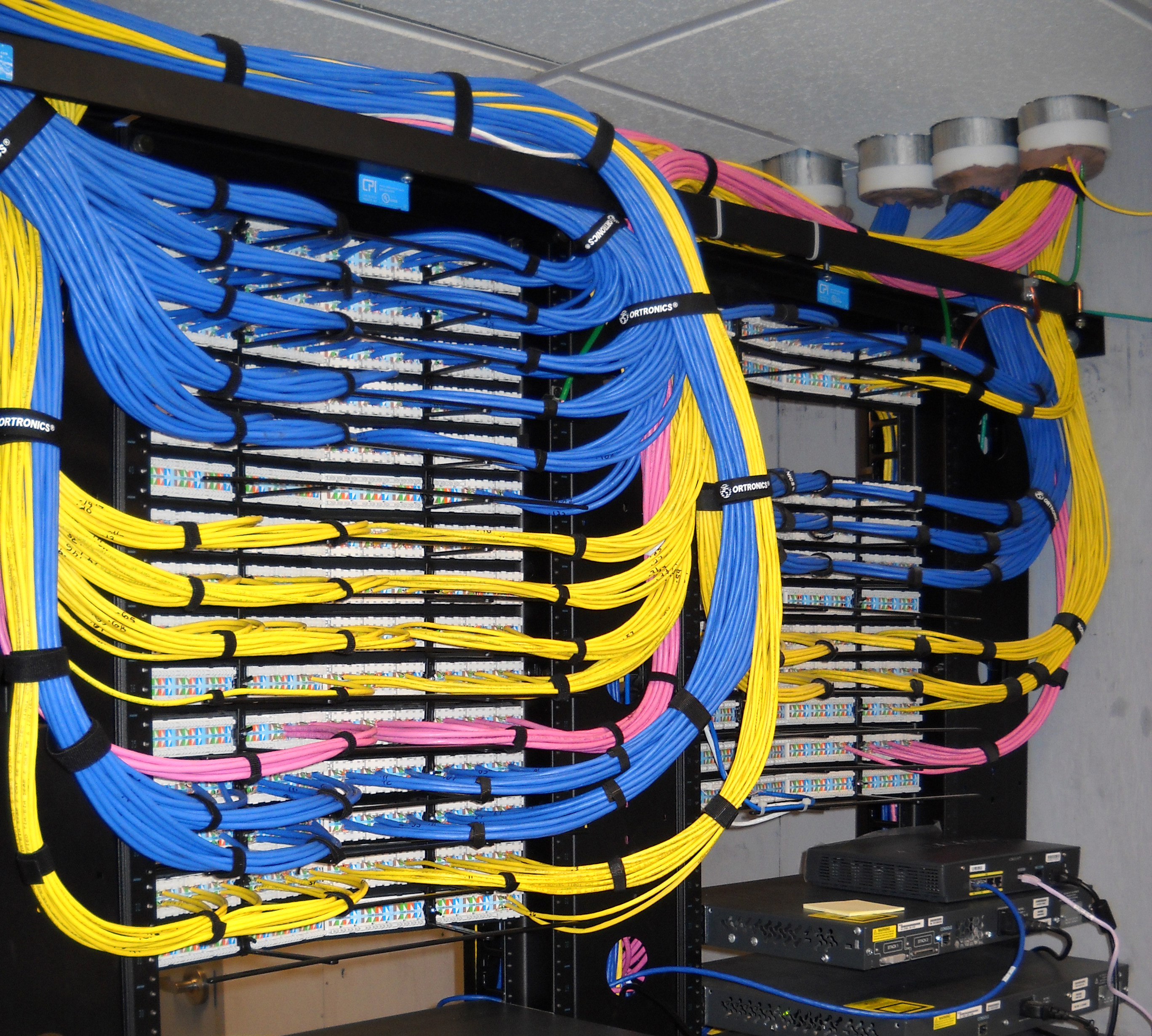Unleashing the Power of Connectivity: Exploring Data Cabling Services
In today's digital age, where technology plays a central role in our personal and professional lives, the importance of a robust and reliable data cabling infrastructure cannot be overstated. Data cabling services form the backbone of any modern organization, enabling seamless communication, efficient data transfer, and unparalleled connectivity. Whether it's a small business, a bustling office space, or a sprawling enterprise, the quality of data cabling can make or break the efficiency of daily operations.
Data cabling services encompass the design, installation, and maintenance of the intricate network of cables that carry vital information across various devices. These cables act as the lifeline, ensuring uninterrupted flow of data from server rooms to individual workstations, facilitating communication, and supporting critical business processes. With the increasing reliance on cloud computing, IoT devices, and the ever-growing need for speed and bandwidth, investing in high-quality data cabling has become paramount.
When it comes to data cabling, precision and expertise are key. Professional data cabling services providers possess the knowledge and experience needed to design a network infrastructure tailored to the unique needs of your organization. From carefully planning the layout, to selecting the appropriate types of cables and connectors, to ensuring compliance with industry standards, these experts ensure a reliable and future-proof cabling infrastructure.
In the fast-paced world we live in, where connectivity is king, investing in data cabling services is a wise decision that can offer numerous benefits. It not only enhances the stability and performance of your network but also minimizes downtime, reduces the risk of data loss or corruption, and sets the stage for scalability and growth. As technology continues to evolve, staying connected and empowering your organization with a solid data cabling foundation is the key to unleashing the full power of connectivity.
Benefits of Data Cabling Services
Improved Efficiency: Data cabling services offer enhanced efficiency in communication and data transfer within a network. By providing a reliable and stable connection, data cabling ensures seamless transmission of information, increasing productivity and reducing downtime.
Enhanced Speed and Bandwidth: With data cabling services, businesses can experience faster data transfer speeds and increased bandwidth capabilities. This enables the efficient handling of large data files and the smooth operation of bandwidth-intensive applications, leading to improved overall performance.
Scalability and Flexibility: Data cabling services allow for easy scalability and flexibility in network configurations. As businesses grow and expand their operations, data cabling provides the infrastructure to accommodate future technological advancements and increased data requirements.
Please let me know if there's anything else I can assist you with.
Types of Data Cabling
When it comes to data cabling, there are various types of cables that are commonly used to connect and transmit data between devices. These cables provide the infrastructure for reliable and efficient data communication. Let's explore three popular types of data cabling:
Ethernet Cables: Ethernet cables are one of the most widely used types of data cabling. These cables are commonly used to connect devices within a local area network (LAN). They come in different categories, such as Cat5e, Cat6, and Cat7, each offering different levels of speed and performance. Ethernet cables utilize twisted pair wiring, which helps reduce electromagnetic interference and allows for faster data transfer rates.
Fiber Optic Cables: Fiber optic cables are known for their high-speed data transmission capabilities and long-distance communication. These cables use optical fibers to transmit data as pulses of light, allowing for rapid and efficient data transfer. Fiber optic cables are less susceptible to interference and can transmit data over longer distances compared to other cabling options. They are commonly used in applications that require high bandwidth, such as telecommunications, data centers, and internet connections.
Coaxial Cables: Coaxial cables are widely used for cable television (CATV) and high-speed internet connections. These cables consist of a copper core surrounded by layers of insulation and metallic shielding. Coaxial cables are capable of carrying high-frequency signals with low interference, making them suitable for transmitting data over longer distances. They are also commonly used in surveillance systems and audio/video applications.
Each type of data cabling has its own advantages and is suitable for specific applications. Selecting the right type of data cabling is crucial to ensure reliable and efficient data transmission in various networking environments. Whether it's Ethernet cables for local networks, fiber optic cables for long-distance communication, or coaxial cables for CATV and internet connections, choosing the appropriate cabling solution is essential for unleashing the power of connectivity.

Considerations for Data Cabling Installation
When it comes to data cabling installation, there are several important factors to consider. These considerations will ensure that your cabling infrastructure is properly planned and executed, resulting in efficient and reliable connectivity.
Firstly, it is crucial to assess the specific requirements of your network. Consider the volume of data that needs to be transmitted as well as the speed and reliability that is necessary. This will help determine the type of data cabling that is most suitable for your needs, whether it be copper or fiber optic cables.
Next, the physical layout of your space should be taken into account. Understanding the distances between devices and the pathways the cables will need to traverse is essential. Proper planning will help avoid unnecessary cable lengths and minimize potential interference or signal loss.
Lastly, don't forget to consider future scalability. Technology is constantly evolving, so it's important to plan for future growth and expansion. Opting for a cabling solution that allows for flexibility and easy upgrades will save you time and money in the long run.
By carefully considering these factors, you can ensure that your data cabling installation is efficient, reliable, and ready to support the increasing demands of modern connectivity.